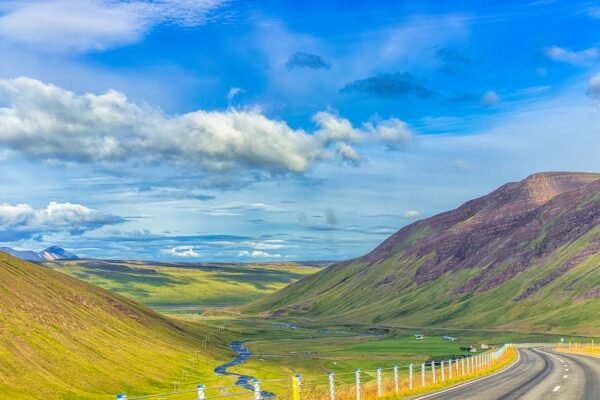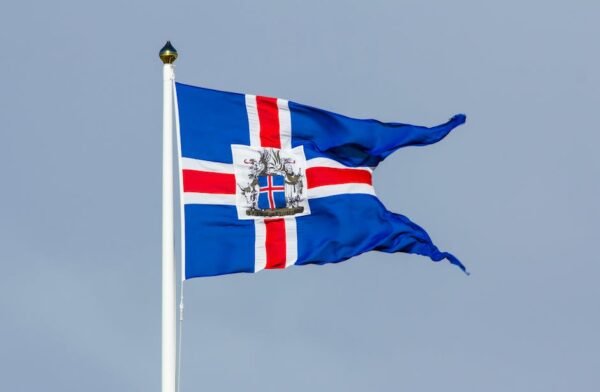Contents [hide]
Although it is not the largest island in the world, Iceland is often referred to as “The Land of Fire and Ice” because of its volcanoes and glaciers. It is one of the most geologically active countries in the world and is home to more than 10% of the world’s active volcanoes. Iceland is also the world’s largest electricity producer per capita and almost 75% of the country’s electricity comes from renewable sources.
Iceland is a country located in Northern Europe. It is an island country, and its main island is called Iceland.
Which country does Iceland belong to?
The occupation of Denmark by German forces in 1940 led to Iceland assuming control over its own foreign affairs. The country gradually moved toward complete independence from Denmark, culminating in a formal declaration of independence on June 17, 1944. Iceland has remained a sovereign republic ever since.
Iceland is a beautiful country located right below the Arctic Circle. It’s capital, Reykjavik, is the northernmost capital in the world and is a great place to visit. If you’re looking for a place to get away from it all and enjoy some stunning scenery, Iceland is the perfect destination.
What language does Iceland speak
Icelandic is a North Germanic language spoken by about 314,000 people, the vast majority of whom live in Iceland where it is the national language. It is most closely related to Faroese and Western Norwegian. The language is more conservative than most other Western European languages.
It is no surprise that English is taught as a second language in Iceland considering the high fluency rate among the population. However, what is more impressive is the number of other languages that many Icelanders are also fluent in. This speaks to the country’s commitment to language learning and its openness to people from all over the world. This is a great opportunity for those looking to practice their language skills in a welcoming and supportive environment.
How much is $1 US in Iceland?
The currency converter is a quick and easy way to check the exchange rates of various world currencies. The rates are updated frequently, so you can always get the most up-to-date information.
Iceland is most famous for its rugged landscapes and scenery. The Northern Lights, Blue Lagoon, volcanoes, glaciers, and waterfalls top the list of must-sees. Iceland is also famous for its history and being settled by the Vikings.
Do I need a passport to go to Iceland?
U.S. citizens may enter Iceland for up to 90 days for tourist or business purposes without a visa. Your passport should be valid for at least six months beyond your planned date of departure from the Schengen area. You need sufficient funds and a return airline ticket.
Iceland is an amazing country with a lot to offer! The people are friendly and welcoming, and the country is very tolerant. The crime rate is low, and the emphasis on family and community is strong. The cost of living may be high, but the healthcare is affordable and the education is high quality. The work-life balance is also healthy. Overall, Iceland is a great place to live!
Is Iceland an expensive place to visit
While a trip to Iceland may be relatively expensive compared to other destinations, it is important to keep in mind that it is not the most expensive country in the world. An average trip to Iceland will cost you between $100 and $200 a day, so for a week-long holiday, you can expect to spend between $700 and $1400.
TheIcelandic krona is the official currency of Iceland. The krona is subdivided into 100 smaller units called aurar, and its ISO 4217 code is ISK. The krona was introduced in Iceland in 1874, replacing the Icelandic fix, at a rate of 1 krona = 8 aurar = 96 skillingur. The name “krona” literally means “crown”.
What kind of food is in Iceland?
Iceland’s typical food revolves around fish, lamb, and Icelandic skyr. These have been the mainstay of the Icelandic diet for over a thousand years, and meals are typically meat-based due to the lack of farmable land in the past.
If you’re ever in Iceland, be sure to say “Góðan daginn”! This phrase translates to “good day” in English and is a very common greeting heard throughout the country. It’s a polite and friendly way to greet people, so you’re sure to make a good impression if you use it. Just pronouce it as “go-than-n die-in” and you’ll be good to go!
Can I use American money in Iceland
If you are travelling to Iceland, it is important to know that the currency is the Icelandic króna (ISK). Many places will take US dollars, Canadian dollars, Euros, Norwegian, Swedish and Danish currencies, but it is always best to have the local currency when possible. Payment can be made by credit or debit card in most cases, but it is always good to have cash on hand just in case.
The people of Iceland are some of the happiest in the world, and that happiness is reflected in how they treat others and welcome visitors. Icelanders are generally non-judgmental, easy-going, and down-to-earth. These qualities make them great people to be around and wonderful hosts to visitors. If you’re looking for a place to relax and enjoy yourself, Iceland should definitely be at the top of your list!
What is the temperature of Iceland by month?
The graph above shows the average high and low temperatures in Iceland by month. As you can see, the temperatures begin to drop in October and continue to do so through the end of the year. However, even in the colder months, the average high temperature is still above freezing. So, if you’re thinking about visiting Iceland, you can still expect to see some beautiful scenery, even if you have to bundle up a bit!
Prices in Iceland can be high, but vary depending on the item. A Coke or Pepsi can cost around 342 ISK, or £196. A bottle of water can cost263 ISK, or £151. A meal at an inexpensive restaurant can cost2,500 ISK, or £1432. A three course meal for two at a mid-range restaurant can cost15,000 ISK, or £8512.
Final Words
The country of Iceland is located in the northern Atlantic Ocean. It is an island nation with a population of approximately 330,000 inhabitants.
Iceland is a country located in the North Atlantic Ocean. It is bordered by Greenland, the Faroe Islands, and Norway. It has a population of approximately 330,000 people, and its capital city is Reykjavík. Iceland is a volcanic island and is home to many glaciers, geysers, and hot springs. It is a popular tourist destination for its natural beauty.


0 Comments